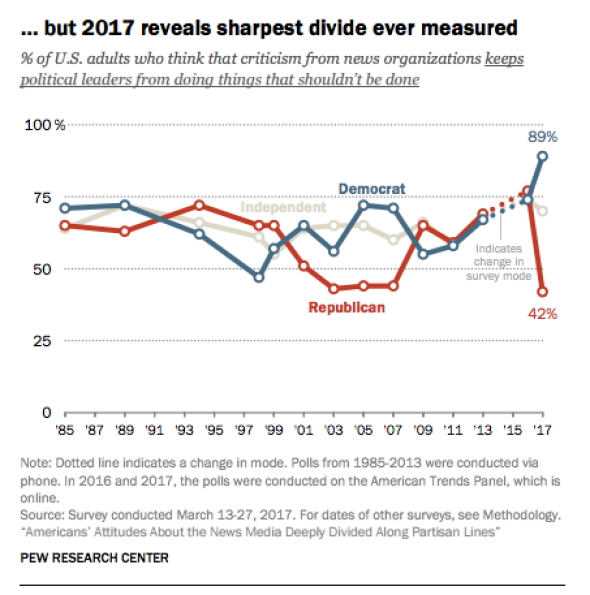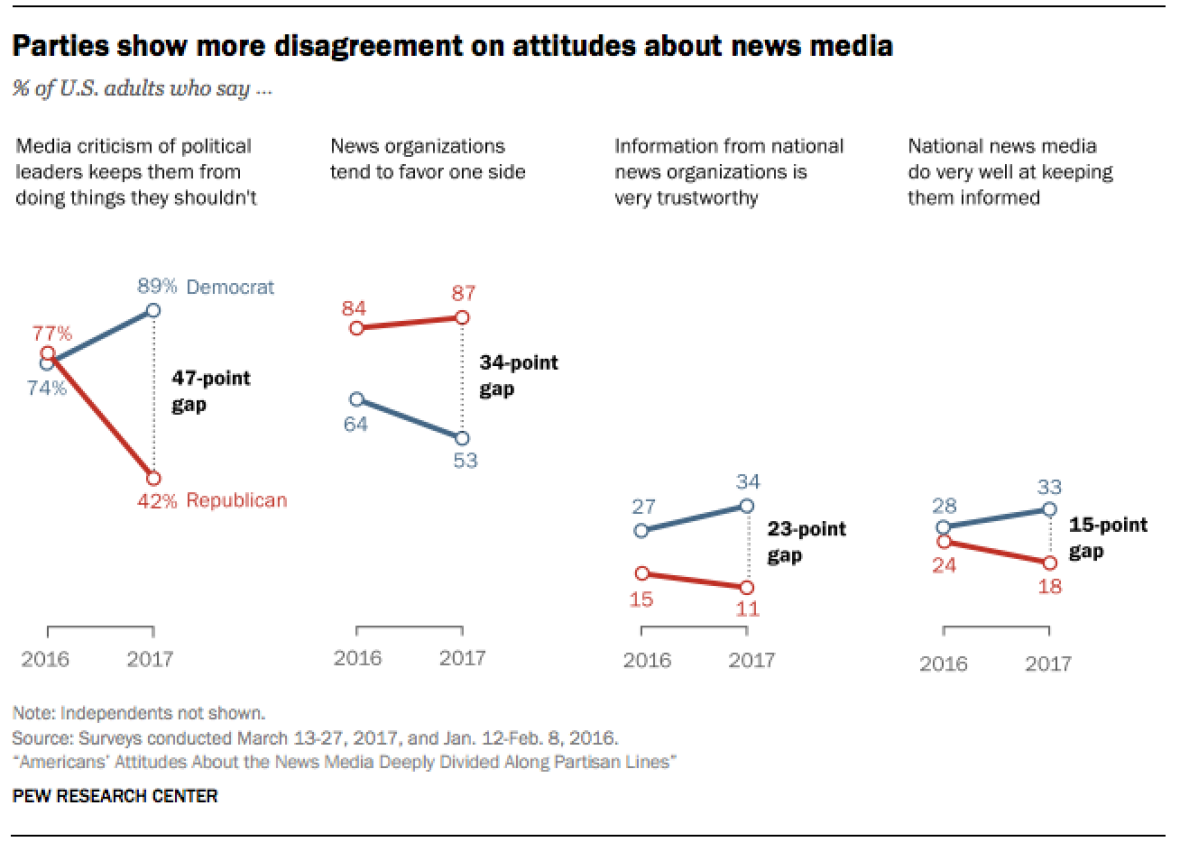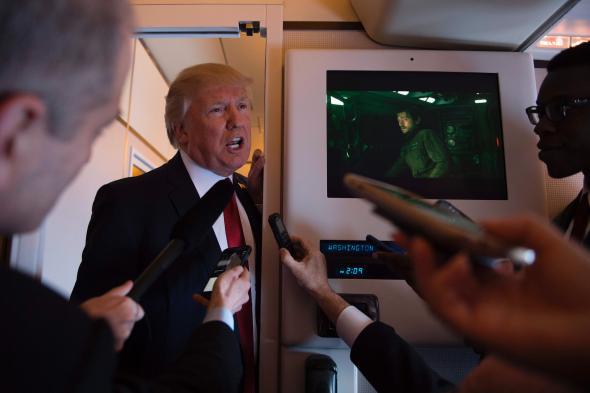Since 1985, the Pew Research Center has been asking American adults whether they support a “watchdog” role for the media. Specifically, its survey asks whether they believe that criticism from news organizations helps to hold political leaders accountable, or keeps our leaders from doing their jobs.
Over the years, respondents across the political spectrum have generally favored a critical press as an important check on politicians’ power. But the degree of that support has always varied somewhat between Democrats and Republicans, and the two parties’ stances have flip-flopped several times. These flip-flops are not random: Whichever party holds the presidency tends to hold a less favorable view of media criticism while the party out of power rediscovers its thirst for hard-hitting investigations. Republicans were all for watchdog journalism during the Bill Clinton years while Democrats’ tolerance for it dwindled. Then came George W. Bush, and Republicans lost their taste for media criticism while Democrats couldn’t get enough of it.
During the Obama years, interestingly, the trend lines converged at last: A majority of both Republicans and Democrats agreed that a skeptical press was good for the country. As of last February, during the presidential primary campaign, 77 percent of Republicans and 74 percent of Democrats held this view.
This week, Pew released its 2017 findings, and the results were strikingly different—and maybe troubling.
Democratic support for oppositional journalism rocketed to 89 percent in the survey conducted this March, breaking the previous record for either party by some 15 percentage points. At the same time, Republican support plummeted to 42 percent, near a record low—resulting in a 47-percentage-point partisan split. Previously, the largest gap between the parties in the survey’s history was 28 points, shortly after the re-election of George W. Bush.
In other words, Democrats and Republicans aren’t just more divided than ever in terms of where they get their news. They’re more divided than ever on the fundamental role of the press, with 56 percent of Republicans now feeling that watchdog journalism does more harm than good.

Pew Research
Since Trump’s election, the parties have also grown farther apart on other key indicators, including trust in media and perceptions of media bias.

Pew Research
Directionally, none of these trends are shocking. Anyone paying attention knows liberals have been devouring critical coverage of the Trump administration, and it’s understandable that the president’s Republican supporters would have less patience for the media frenzy. You could call either side hypocritical, but that misses the point. Intellectual consistency and tribalism are always in tension, and the latter is not unique to any political party.
What’s noteworthy here is the magnitude of the partisan split relative to the historical context. It’s not like the past 32 years have all been smooth political sailing: the 1990s gave us the “Clinton crazies,” the 2000s, “Bush Derangement Syndrome.” Yet when it comes to how the public viewed the media, those years look positively harmonious compared with the dawn of the Trump era.
The survey can’t tell us what’s driving the disparity, but two obvious culprits come to mind. First, Trump is a uniquely polarizing figure in presidential history, one whose very election was viewed by Democrats not merely as a defeat but as an unthinkable travesty that threatened the fabric of the republic. Trump’s actions so far have done little to dispel that view.
At the same time, there’s been a change in the tenor of both liberal and conservative media. Perhaps fueled in part by the race for online traffic and social media shares, partisan outlets that reside outside the mainstream have both grown in stature and become more shrill. Many liberal websites have come to consider themselves part of the anti-Trump resistance. Meanwhile, conservative outlets have taken up Trump’s attacks on the media as a whole—remember, Trump and some of his aides consider the Fourth Estate the “opposition party”—encouraging their audiences to regard even the nation’s largest journalistic institutions as purveyors of “fake news.”
Conservative charges of liberal bias in the media aren’t new, of course—but there’s a real leap between spinning the news and making it up. The more Trump lies, and the more the media call Trump a liar, the harder it becomes to achieve any kind of bipartisan consensus on what’s true and what isn’t. That undermines the premise on which investigative journalism operates—the premise that you can build a case for official wrongdoing based on factual evidence, whose fundamental truth must be acknowledged even by those who dislike the political implications.
That hasn’t stopped the media from doing investigative journalism in the Trump era, of course. On the contrary, the national political press has shown more watchdog spirit over the past year than it has in a long time. As Politico’s Jack Shafer put it: “Trump is making journalism great again.”
Yet observers have marveled at Trump’s apparent imperviousness to an unceasing string of revelations that were widely viewed as potential career-enders. This survey offers a clue as to why that is: The majority of his supporters now view investigative news reports, not as an important check on presidential power, but as just another form of partisan attack.
You can read the full Pew Research report here.
